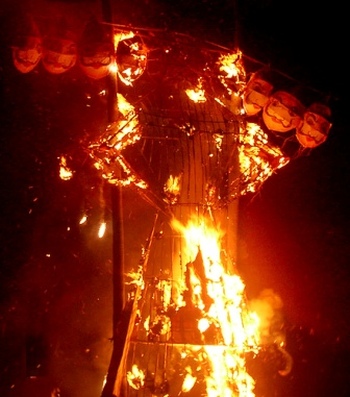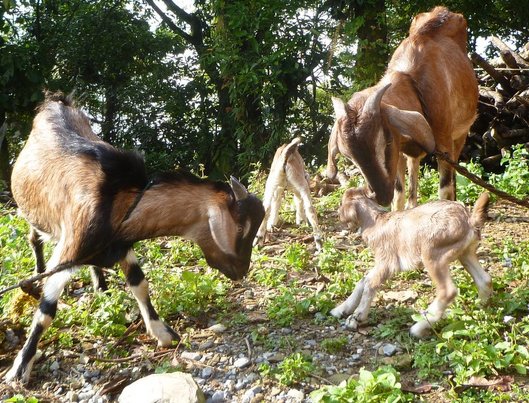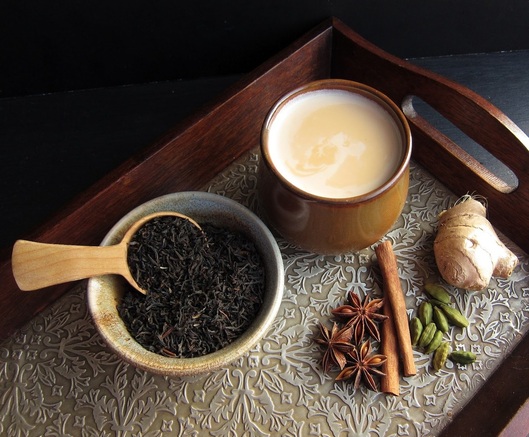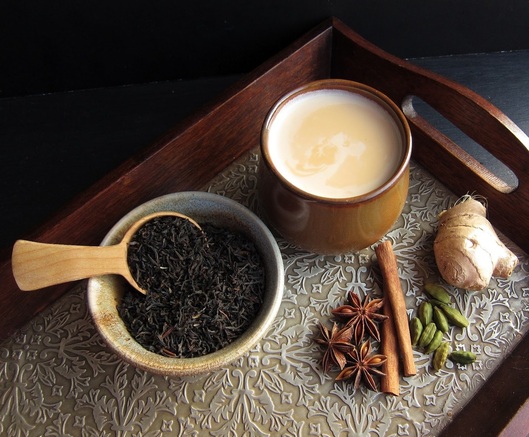There’s a certain date after which all the chai stalls start putting ginger in the tea. The introduction of that spicy tea—masala chai—signals the beginning of “winter”, because the ginger, cardamom, cloves, cinnamon, and even black peppercorns which people boil into their chai are believed to possess heating properties that will help keep your body warm. On that first day, the weather was still uncomfortably hot during the day, but the evenings had begun to cool off. This week, we had the first comfortable days that we’ve experienced in India since we arrived six months ago, and at night it’s cool enough to sleep under a sheet with thick socks on—which is almost miraculous, when we think back to the sweaty nights during the summer when we used to soak ourselves with water right before going to bed, so that it would cool us down long enough to fall asleep while it evaporated.
This is also the beginning of the holiday season in India, and this week we attended two very different celebrations. On Wednesday, we went with friends to watch the Hindu festival Dussehra, which is marked by a procession of camels, carriages, and heavily made-up people in sparkly robes who later act out an important scene in the life of the Hindu god Ram by sword fighting, wrestling, and eventually lighting a three-story tall, ten-headed effigy on fire. We joined a crowd of several hundred people to watch this somewhat chaotic event unfold against a backdrop of fireworks exploding dangerously low to the ground and spraying fire into the crowd. Meanwhile, police herded the masses with bamboo rods whose liberal application did little to improve the safety of the event, and smaller fireworks attached to wooden pinwheels spun feverishly and sometimes broke off, shooting rockets into onlookers. In spite of the apparent danger, however, everyone was in high spirits and we didn’t see anyone get seriously injured. On the contrary, the reckless abandon to danger seemed to merely heighten everyone’s excitement.

This photo isn’t ours, but it gives a good idea of what the grand finale looked like
Then on Saturday, A. and I visited new friends in one of the slum communities here to celebrate Bakhra Eid, the festival in which Muslims remember the story of Abraham nearly sacrificing his son, and celebrate the last-minute provision of a goat to take the boy’s place. We went from house to house, stuffing ourselves with traditional sweets and yogurt curry dishes along the way and chatting with our hosts. An unschooled man who slowly taught himself to read and write carried on a lively discussion of world politics with us and spoke proudly of his oldest daughter, who is working on a bachelor’s degree. Later, we looked through old pictures with a family whose husband/father left the house for work one day a few months ago and simply never came home, and we listened as they told us how the police have refused to help them search for their missing loved one. Talking with these families, we were confronted again with the richness and complexity of this place; with the hope and the pain that are mingled in these narrow alleyways. Taking in their smiles and their stories, we were impressed by our friends’ ability to celebrate in the midst of hardship. It seems that staring life in the face has taught them not only perseverance through grief and struggle, but also the true art of celebration.

Goat: the main course at dinner on Bakhra Eid
Source: New feed



